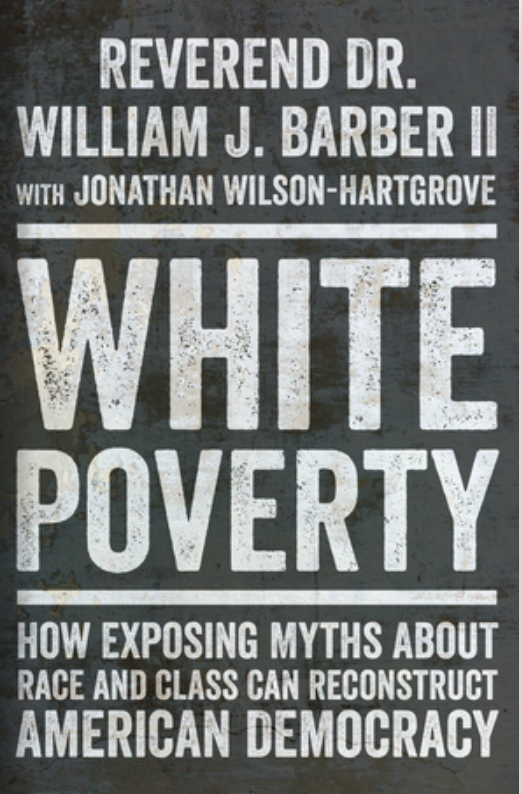In the preface to White Poverty: How Exposing Myths About Race and Class Can Reconstruct American Democracy Reverend Dr. William Barber writes:
"Not everything that if faced can be changed," James Baldwin once observed, "but nothing can be changed until it is faced". I want Americans to face white poverty because I know that change is possible, and I maintain this hope despite evidence to the contrary because I know who I am.
Reverend Dr. Barber and his co-author Jonathan Wilson-Hartgrove draw on their own long history of organizing coalitions of poor Black and white communities around local, state and national issues in their common interests, including The Poor People's Campaign.

They've written White Poverty, because, Barber argues, few people understand pervasive poverty is in the U.S.:
"Most people do not see the scale of the problem. We don't know how to talk about the ways growing inequality has impoverished our democracy. And because we cannot name the crisis, we do not share a conviction that poverty is a plague we must abolish."
The book is rich with historical analysis, storytelling from both authors of building trust across racial barriers to support self-advocacy (from working against the threatened closures of local hospitals to preserving national voting rights), and detailed data on the extent of poverty in the U.S.
The Working Class Studies Association recently sponsored a webinar with Wilson-Hartgrove, moderated by the excellent Betsy Leondar-Wright and Jack Metzgar.
(Update: for those not seeing the embed when reading the email version of this post, here's the direct link: https://www.youtube.com/watch?v=bZpU1YiBeVk)
In the Q and A at 1:12, a faculty member asks about progress the authors see in opening these conversations on college campuses where academic discourse too often conflates poverty and race. There are few such conversations, but Wilson-Hartgrove speaks of his own students being frustrated by their lack of opportunities to solve problems together around shared interests.
What if first-generation support programs --whose strength is their service to students across racial identities – organized reading groups of such books (or viewing groups of videos like this) and faculty partnered with these programs to support students organizing together on specific campus changes in their shared class interests?
What if campuses organized not just "celebration" days for first-generation students that acknowledge little about their backgrounds but also arts and cultural events through which students tell their own stories of childhood and family and communities with too few safety nets?
What if all students were taught in college about the long and ugly history of U.S. politicians pitting white voters against Black neighbors, even as poor white voters were left behind by wealthy white coalitions?
What are the arguments against poor and working-class students learning more of the history and politics of social class inequalities as context for their status as "first-gen" who struggle but "cannot name the crisis" of their own families and communities ?
[footnote: When I searched the image bank partnered with this platform for "poor", 95% of the images were of people of color, most of them international. Sigh.]




